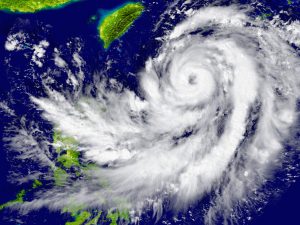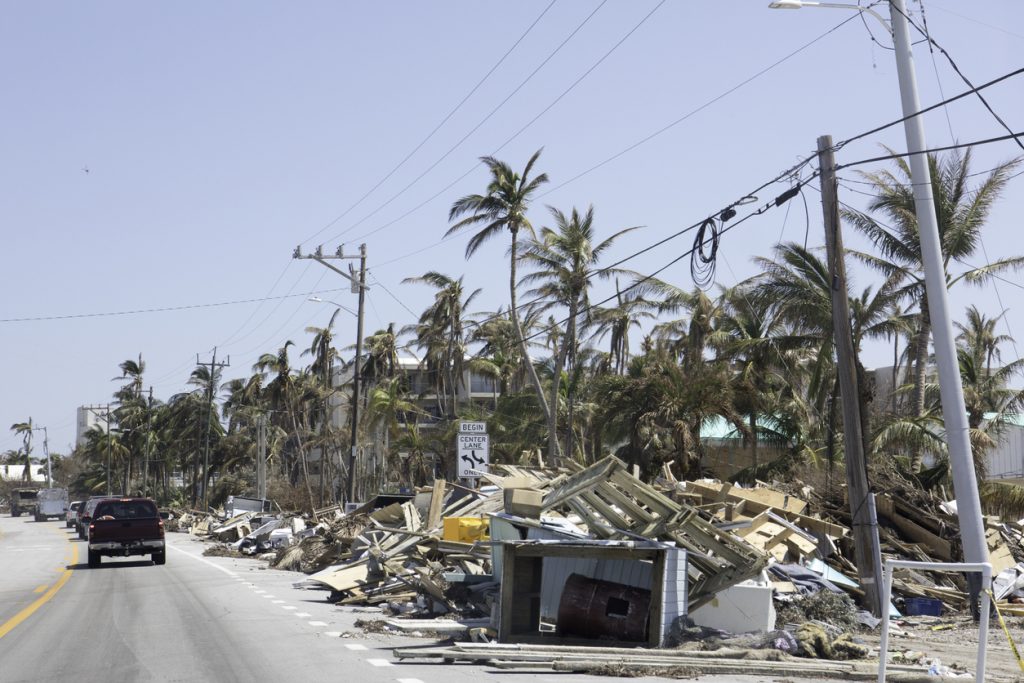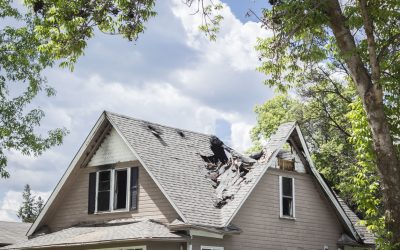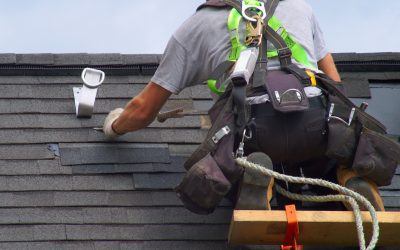How to Prepare for Hurricane Helene: Essential Tips for Safety and Survival
Hurricane Florida Helene is approaching at a breakneck speed. According to the updated NHC weather report, it may cause substantial damage to local buildings, the US economy, and the ecosystem. In such a hazardous situation, no scientific miracle can work to mitigate the impacts of the disaster. Only preparation is a crucial key to keeping everyone safe in the family. In this guide, we’ll cover safety measures for survival and minimize risk to your movable and immovable property, along with insights on how a public insurance adjuster can assist before and after the hurricane.
Get in touch with us today and get a FREE consultation
Understanding Hurricane Helene’s Threat
- Wind Speeds and Structural Damage
The anticipated wind speed of Hurricane Helene is 100+mph in major parts of Florida by Thursday evening. It can cause catastrophic devastation to the coastal regions. Due to its strong-force winds, buildings can collapse and make most of the area uninhabitable for the next few weeks.
- Flood Risks and Storm Surges
According to the recent weather report of the National Hurricane Center, the storm surge will be between 15 ft and 20 ft. This indicates the upcoming risk of disastrous flooding and other damages, including erosion of beaches and coastal regions and destruction of buildings. Furthermore, it will destroy boats and the livelihood of people belonging to Florida coastal areas.
- Power Outages and Communications Breakdowns
The parts of Florida’s Gulf Coast, from Anclote River to Mexico Beach can encounter a major power outage and communication breakdown as the worst consequences of Hurricane Helene. Furthermore, Mexican places from Cabo Catoche to Tulum can also suffer a lot. However, the local government has prepared to combat these unexpected events with emergency generators, food and water supplies, and a rescue team.

Emergency Kit Checklist
Here is an exhaustive checklist that includes essential items to survive and win the days of Hurricane Helen:
- 1 gallon of bottled water per person
- Non-perishable food for 3 days supply; If you include canned food, you must have a can opener
- First aid supplies
- Disinfectant liquid/wipes
- Bandages
- Antiseptic ointment
- Tissues
- Toilet paper
- Flashlights, batteries, and a portable radio
- Cash, blankets, and extra clothing
- Multi-tool, duct tape, and waterproof containers
- Whistle to signal your location
- Important documents (insurance papers, IDs)
- Sleeping Bag and warm blanket
Securing Your Home Before Hurricane Helene Hits
- Shuttering Windows and Reinforcing Doors
Protecting property from structural damage is crucial to protect walls, ceilings, windows, and doors. Hence, shutter windows and doors before 48 hours of the forecasted storm surge or landfall. Besides this, take some storm safeguard measures in advance to secure your home. Invest money in installing impact-resistant roofs, doors, and windows. Reinforced doors and windows mitigate the risk of havoc, caused by hurricanes.
- Securing Outdoor Furniture and Belongings
It is easy to secure patio furniture and belongings with a few easy proactive steps. Anchor the outdoor furniture with heavy-duty straps and chains. If the furniture and belongings are lightweight, you should store them in the garage or basement area. Remove cushions and pillows from the outdoor furniture. Additionally, remove hammocks and swings to prevent them from causing substantial damage.
- Checking Roofs, Gutters, and Drainage Systems
Next, secure roofs, gutters, and drainage systems before Hurricane Helene hits your property. Thoroughly check them for damages and clear debris. Address issues like cracks, leaks, or damaged shingles and other fixtures. For example, save your rooftop equipment with hurricane straps.
- Installing Surge Protectors for Electrical Appliances
Natural calamities are common in Florida. Therefore, it is vital to take precautionary measures in advance. Call a professional to install surge protectors for electrical appliances. This way, you will ensure the hurricane’s catastrophic effects do not cause power outages and other electrical damages.
- Creating a Home Emergency Plan with Evacuation Routes
If you live in the hurricane Helene evacuated area, you should have a family meeting. Create a home emergency plan with them. Plan escape routes and create an emergency survival kit. Additionally, choose an area out of the affected region to meet if you or your family members lose their way during evacuation.
Evacuation Planning: What You Need to Know
- Know Evacuation Zones and Routes
First of all, create an evacuation plan for your family members. This starts with updated information about nearby evacuation zones and routes. Plan where and how you and other family members will go. Know public transportation options and emergency shelter locations.
- Have a Backup Destination
Identify friends and family members where you can go to take temporary shelter. They should not be in the affected areas. By relocating yourself and your family members to these locations, you can get a big help.
- Preparing a Go-Bag with Essential Supplies
Prepare a go-bag with essential supplies before the harsh winds hit your home. Ensure you carry a first aid box, water, food, toilet paper, flashlight, battery, radio, etc. These essential items will help you survive during the difficult days of evacuation.
- Arranging Transportation in Advance
When preparing an evacuation plan, consider identifying alternate routes and modes of transportation in advance. Mandatory evacuation will not give you enough time to think and plan. It is better to leave early and reach a safer place than to become a victim of Hurricane Helene.
- Keeping Pets in Mind
Many hotels, resorts, or temporary shelters are pet-friendly. Accompany your pets with an emergency kit to maintain their health and hygiene. The kit should include food, water, medications, cleaning supplies, and other essentials.
Communication and Staying Informed During Hurricane Helene
Communication plays a crucial role in staying safe during Hurricane Helene. There are two forms of communication for you. One is received and another one is distributed. Communication received includes updated weather alerts, evacuation orders, and potential Hurricane developments. Distributed communication includes evacuation plans and other plans on how to prepare during Hurricane Helene and post-catastrophic events.
This ensures your family members have comprehensive information regarding evacuation routes, emergency plans, backup destinations, and transportation. This will help them reach support and resources in an emergency. So, consider the following points to establish an effective communication:
- Download weather and emergency alert apps
- Keep phones charged and have portable chargers
- Use battery-powered radios to receive weather updates
- Establish communication with family and neighbors
After the Storm: Recovery and Safety Tips
- Avoid Floodwaters, Downed Power Lines, and Debris
After the storm, you must take every step vigilantly. Your negligence can cause a risk to your life and to the person who is with you. Hence, avoid floodwaters, downed power lines, and debris. Remember that the storm has gone but its red flag signs still exist.
- Check for Structural Damage Before Re-Entering Your Home
Thoroughly inspect your home to find potential danger before re-entering the building. There can be many signs of risk, including leaning walls, damaged roofs, missing shingles, broken chimneys, and more.
- Document Property Damage For Insurance Claims
The next significant step is to document property damage. This will help you settle a favorable claim settlement for the damage caused to your property. Hence, take many photographs and videos to make a stronger hurricane damage or fire damage insurance claim caused due to hurricane.
- Follow Local Advisories for Drinking Water and Food Safety
There can be a contamination risk in your area after a storm. Hence, follow local advisories to make a well-informed decision on drinking water and food safely.
- Use Generators Safely
Be very careful with generators after the storm. Ensure you operate generators on a dry surface. And yes, place it 20 feet away from windows, vents, buildings, and doors. Strictly avoid running the generator inside the home or garage.
The Role of a Public Adjuster Before and After Hurricane
In the wake of Hurricane Helene, navigating the complex world of insurance can be frustrating. A public adjuster Orlando FL can play a crucial role in managing the comprehensive property damage coverage before the storm and understanding the ins and outs of the insurance claims afterward. Their expertise and specialization assist in documenting damage, filing insurance claims, and negotiating settlements to help you get full and fair compensation.
Conclusion
Preparing for Hurricane Helene is a crucial step that can protect your loved ones and possessions in the final moments of the disaster. By following the essential tips outlined in this guide, from making an evacuation plan to working with a public insurance adjuster, you can weather the storm with a positive attitude. Don’t wait until it’s too late—start preparing today.
FAQs
- What should I do if I can’t evacuate before the hurricane?
If you can’t evacuate your home before the hurricane, go to garage or basement areas to prevent the worst outcomes of the storm on life.
- How can I protect my car during a hurricane?
Park your car in a safe and covered area like a garage during a hurricane. Plus, it should be covered with a car cover or protective shield to safeguard against fallen debris.
- What should I do if I lose power during the storm?
Unplug electronic items from power outlets during the storm to prevent substantial loss or damage. Use flashlights for light and radio for updated storm information.
- How long should I store water for hurricane emergencies?
Store at least 3 days’ water supply for each family member and pet for hurricane emergencies.
- When is it safe to return home after a hurricane?
When local officials confirm it is safe to revisit the evacuated zones, you should return to the place.



